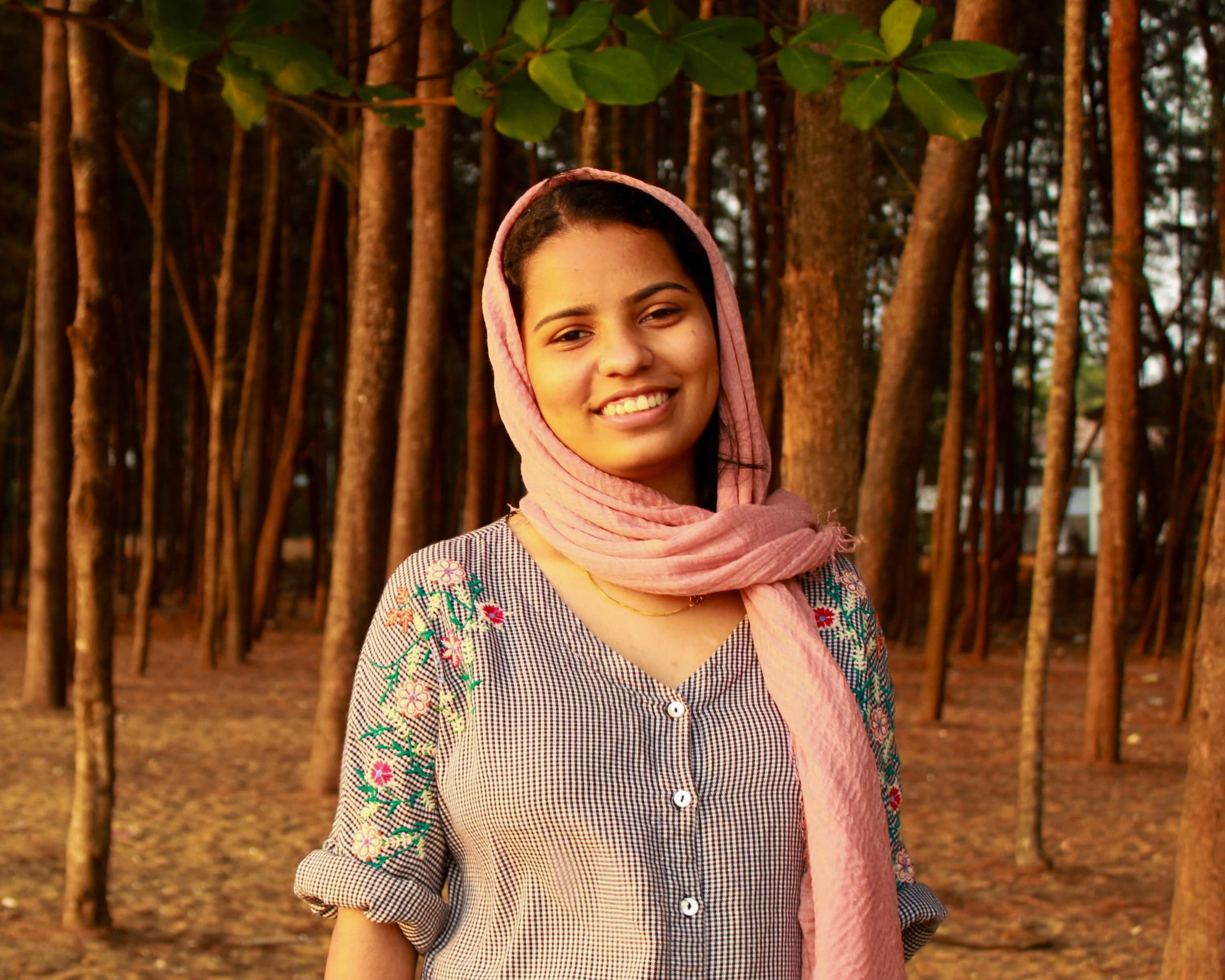Inlaks Research and Travel Grantees 2023: Saloni Verma and Sulthana Nasrin
Saloni has a Masters in Modern History from the Jawaharlal Nehru University and is pursuing a PhD from the Shiv Nadar Institution of Eminence. She is interested in working with a wide range of primary sources including archival documents around the concepts of colonial space, Nehruvian development State, Political economy, knowledge and power, technocracy and capital and labour.
Sulthana is a PhD candidate at the Centre for English Studies, Jawaharlal Nehru University, Delhi.
In this week’s post, they tell us about their area of research
and what they hope to achieve through the travel grant.
—
Saloni Verma
History interests me for its distinct ability to defamiliarize seemingly ubiquitous things, by locating them in place and time. Everything from muffled expressions to chronic ailments and ordinary potholes is woven into the tapestry of textured histories. And what today is more ubiquitous than concrete? Yet, the industrial scale of its use could not be conceived in the subcontinent a couple of centuries ago. My research traces the journey of concrete as it spread over South Asia through the mid-nineteenth and twentieth centuries.
This story is entwined with the unique experiences of modernity and the reconfiguration of regions and spaces in South Asia. It analyzes major infrastructural transitions over a hundred years by studying momentous projects including certain irrigation works, railway bridges, municipal developments, wartime structures and the ‘nation building’ exercise that teetered on irreconcilable hopes pinned to mega hydroelectric schemes on one hand and pucca housing for all on another. I trace the historically changing meanings of ‘cement’ and ‘concrete’ over time – changes that were intertwined with adaptations in technology, transformations in the constructional labour process, and the reconfiguration of political subjectivities.
This research probes the concerns of speculation and rapid construction in the wake of disasters and emergencies, placing industrial materials like cement and steel within this history. Structures cast in concrete and steel were also aesthetic devices promising the people’s entry into modernity. Lastly, pressing concerns like sand mining and unmonitored construction dust along the Gangetic plains, including my hometown in Patna, also inform my approach to archival research as I ask whether resilience to disasters was compliant historically with the overbuilding of permanent structures.
The Inlaks Research and Travel Grant will enable me to access rare records placed in the British Library, the National Archives, the Institution of Civil Engineers, the Science Museum and the Architectural Association Archives. Sources like technical manuals, biographies, rare journals, and photographs will help in mapping parallel developments across the British Empire and continents, giving my thesis a truly global thrust. By availing this grant, I seek to contribute to the broader field of material and infrastructure studies.
Sulthana Nasrin
I am working on a thesis titled ‘Practices of Print and Cultures of Reading in Modern Kerala’. My thesis attempts to study the early forms and formations of print, reading and the making of readers by focusing on the history of reading aloud practices from the missionary and vernacular print archives.
This research has emerged from my growing up in a multilingual household, speaking and listening in Tamil but reading and receiving formal education in Malayalam and later English. I grew up constantly asking how one becomes a reader of a particular language when there is strong institutional support to learn one, and the other gets carried through the body - listening, looking and saying it aloud. I understand this question pertinent to our standards of literacy and how the conventional measures of reading and writing get recorded. This means that one can be aware of the texts and information around by looking at or listening to the printed artefact and be part of a literate community, and still not be formally literate and a qualified reader. My thesis tries to respond to this history of reading with a special interest in nineteenth and early twentieth-century Kerala owing to its glorified literacy movement. This gives me an opportunity to locate how the princely states and a presidency (Travancore, Cochin and Madras) worked closely to imagine a reading region as well as to trace the intricacies of being and becoming a reader based on one’s caste, gender and religion, among other categories in modern Kerala.
The Inlaks research and travel grant will help me to visit the United Kingdom and locate archival materials from the British Library, School of Oriental and African Studies (University of London), Cadbury Research Library (University of Birmingham), the Bodleian Library, etc. I look forward to this as an exciting opportunity to access missionary registers, periodicals, correspondences, preaching manuals and recitation manuals, including early religious prints, lithographs and school textbooks. The grant will allow me to explore print and visual archival materials to write a compelling thesis on the cultures of reading and encourage my research endeavours ahead.
To know more about the Inlaks Research and Travel Grant, click here.








